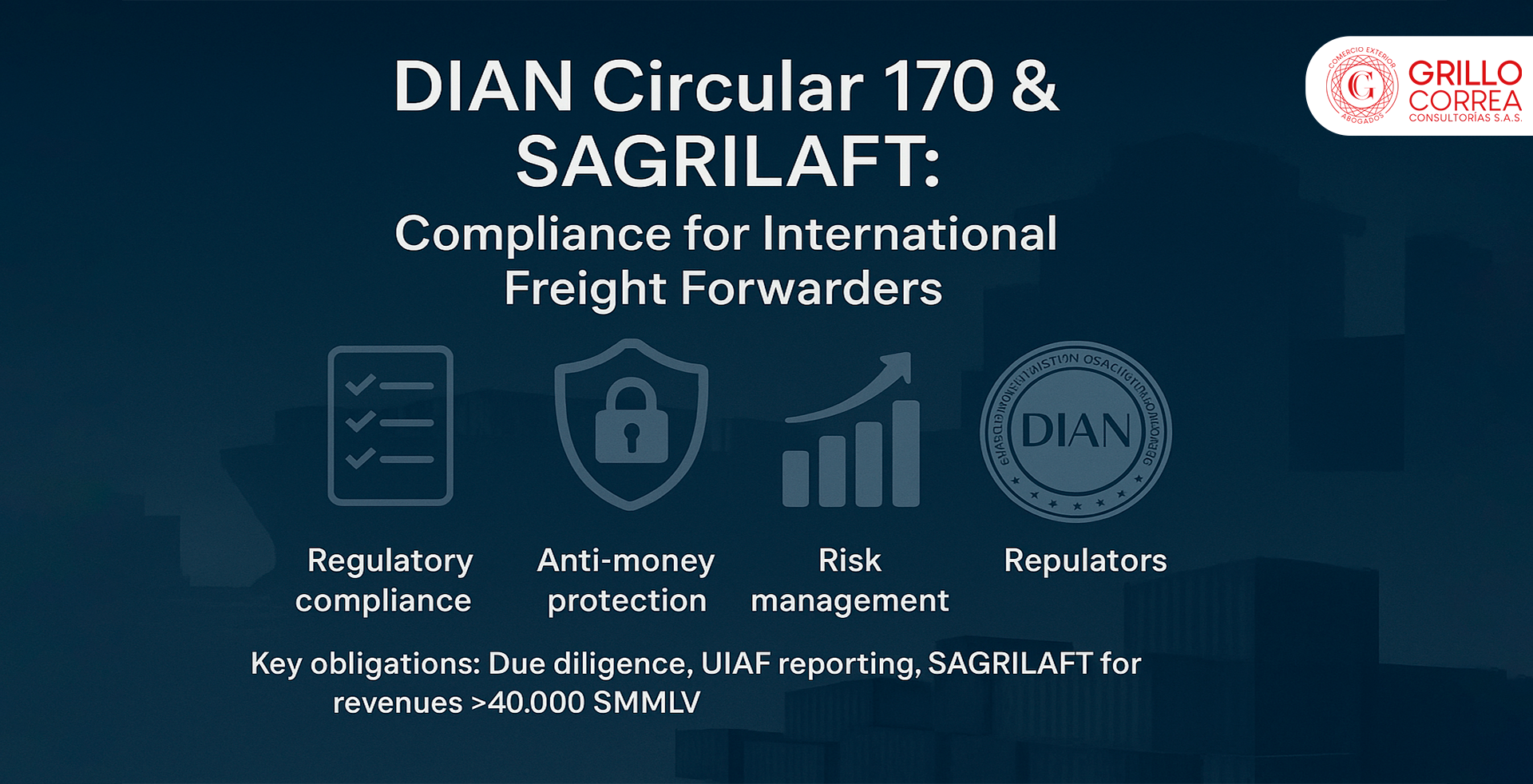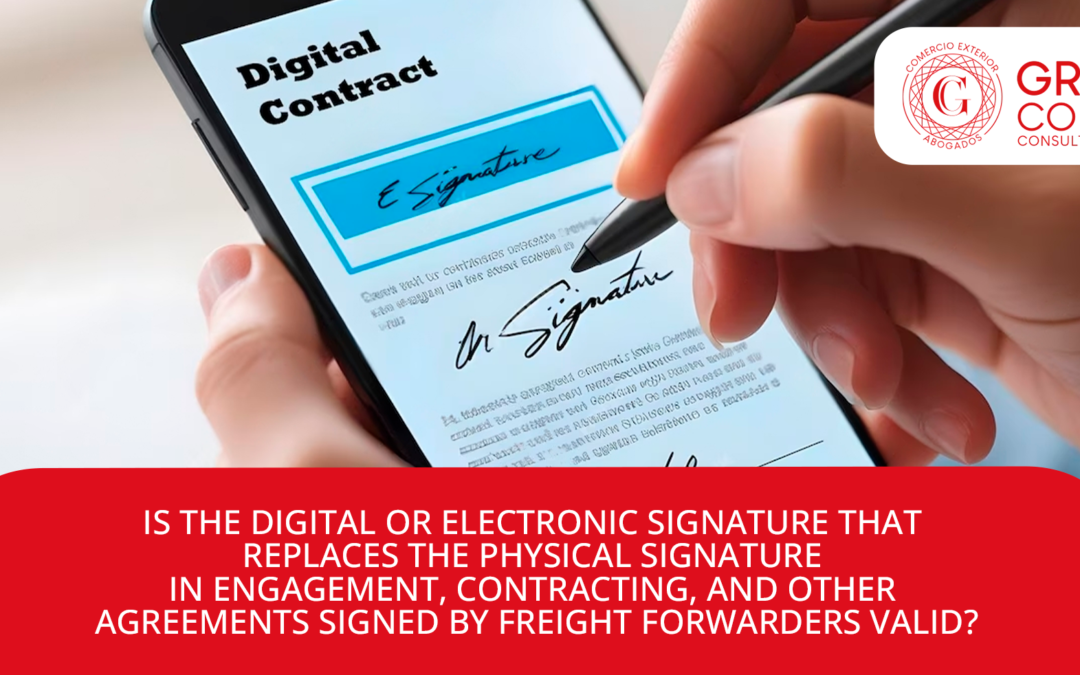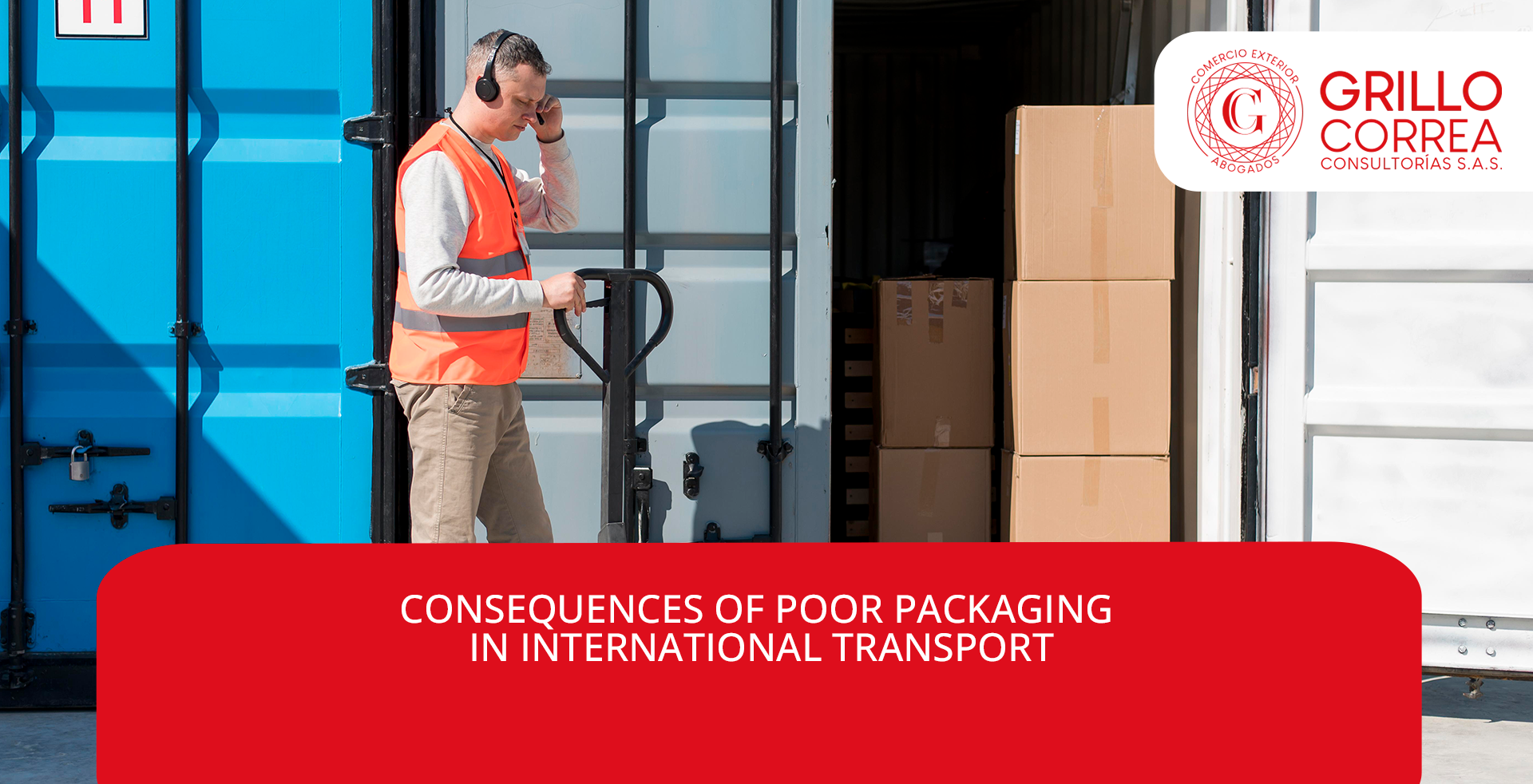DIAN’s Circular 170 of 2002: Key Anti-Money Laundering Rules for Freight Forwarders
External Circular 170 of 2002 issued by the DIAN establishes essential guidelines for foreign trade stakeholders, including international freight forwarders, to prevent and control money laundering. As auxiliaries to customs functions, freight forwarders are obligated to implement measures to know their clients and their operations, maintain detailed transaction records, and report any suspicious activity to the UIAF. This regulation, based on laws such as Law 526 of 1999 and the Criminal Code, requires due diligence to identify the true nature of clients’ business activities. Non-compliance not only entails strict supervision by the DIAN but may also result in criminal liability for all parties involved in illicit operations, aiming to protect companies from sanctions, reputational risks, and investigations.
You can also read –> IS THE DIGITAL OR ELECTRONIC SIGNATURE THAT REPLACES THE PHYSICAL SIGNATURE IN ENGAGEMENT, CONTRACTING, AND OTHER AGREEMENTS SIGNED BY FREIGHT FORWARDERS VALID?
Who Can Be Held Liable Under Circular 170?
Furthermore, the circular clarifies that criminal liability for money laundering may fall not only on the material perpetrators but also on importers, exporters, carriers, intermediaries, and other actors who directly or indirectly participate in these operations. Therefore, its implementation protects the company from administrative sanctions, reputational risks, and potential criminal investigations.
SAGRILAFT Compliance: Mandatory for Foreign Trade Companies
In addition, the Self-Control and Comprehensive Risk Management System for Money Laundering, Terrorism Financing, and the Financing of the Proliferation of Weapons of Mass Destruction (SAGRILAFT) is mandatory for the foreign trade sector. This includes freight forwarders supervised by the Superintendence of Companies of Colombia, provided they are not under the oversight of another superintendence. SAGRILAFT is designed for the prevention, control, and management of risks associated with these illicit activities.
SAGRILAFT Threshold: Which Companies Must Comply?
According to Circular No. 100000016 of December 24, 2020, companies required to adopt this system are those that, as of December 31 of the previous year, reported annual revenues equal to or greater than 40,000 monthly legal minimum wages (S.M.M.L.V.).
How to Implement SAGRILAFT: Client Due Diligence & Monitoring
Implementing a Self-Control and Comprehensive Risk Management System for Money Laundering and Terrorism Financing (SAGRILAFT), in accordance with Circular 100-000016 of 2020, is crucial for companies. A fundamental pillar of this system is thorough client knowledge, which includes identifying the ultimate beneficiary and applying due diligence. This involves not only collecting key information such as contact details and beneficiaries but also maintaining an up-to-date database to identify alerts and carry out continuous monitoring, at a minimum frequency of every two years. Strict compliance with this regulation not only protects companies from sanctions and risks related to ML/TF/FPWMD but also strengthens transparency and trust in the market. Ignoring these obligations may lead to significant sanctions from the Superintendence of Companies.
Freight Forwarders’ Obligations Under SAGRILAFT & DIAN
In this regard, international freight forwarders are obligated to carry out a strict client identification process, whether for their direct contracting party or the final beneficiary of the operation. This obligation is regulated by both the National Tax and Customs Directorate (DIAN) and the Superintendence of Companies.
Risks of Non-Compliance: Sanctions & Reputational Damage
Failure to comply with this obligation can result in administrative sanctions and exposes the company to operational, financial, and reputational vulnerabilities due to the lack of adequate mechanisms to mitigate risks associated with its operations and commercial relationships.






